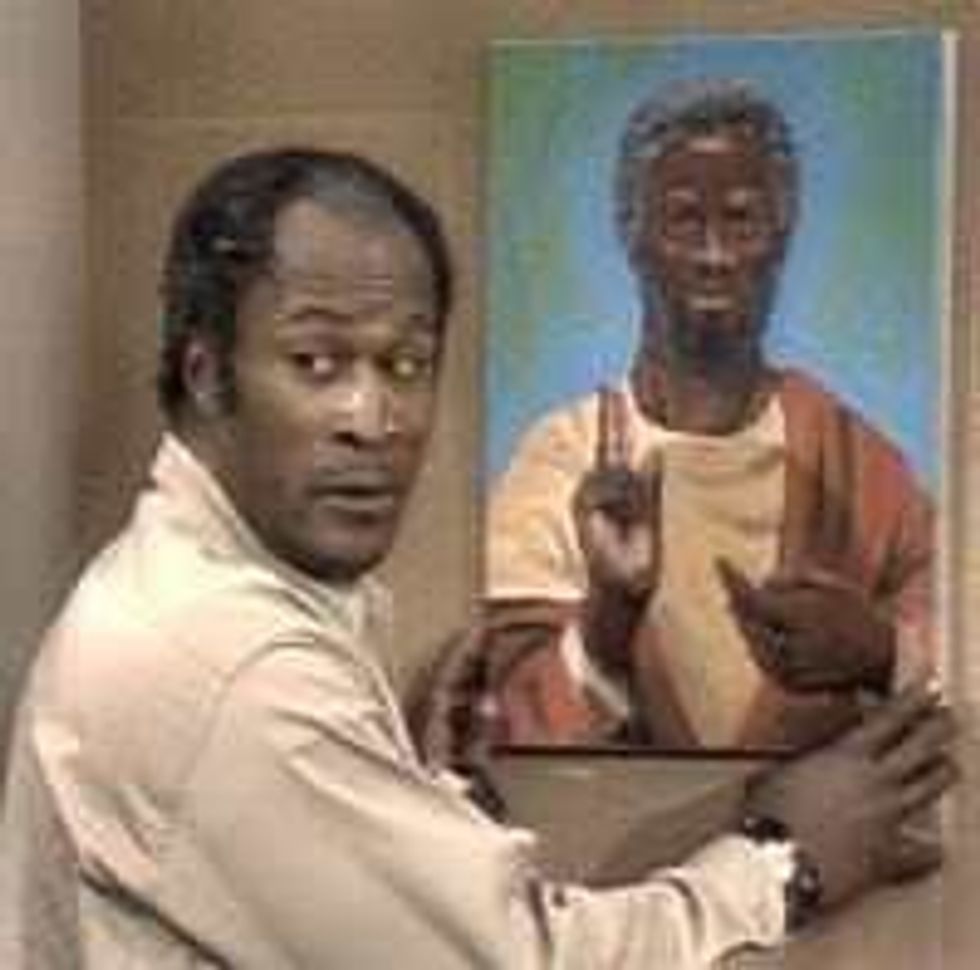Pushback for Obama: Black Lives Matter Activists Are Not Just 'Yelling'
In his poem, “For My Own Protection,” the late black gay poet Essex Hemphill wrote:
I want to start an organization
to save my life.
If whales, snails, dogs, cats
Chrysler and Nixon can be saved,
the lives of Black men are priceless
and can be saved.
We should be able to save each other.
Hemphill, who died in 1995, could have been writing about the Black Lives Matter movement. Born in 2013, after George Zimmerman was acquitted for the murder of Trayvon Martin, in just two short years, the nascent civil rights movement demanded Americans pay attention to police violence against African-Americans. It employed the tactic of disruption and direct action to confront institutional racism, and to make household words of the names of black youth who were killed by or died in the custody of police.
Beyond that, the young movement single-handedly changed the discourse of the Democratic presidential race, and forced all of the major candidates to address specific concerns about police violence in African-American communities. Thanks to Black Lives Matter, data on police killings—particularly police killings of African-Americans—is finally being gathered and may influence policy changes.
Given all of the above, it was more than a little disconcerting to hear President Obama characterize the work of the Black Lives Matter movement as “yelling.” At a town-hall meeting in London on Saturday, President Obama offered an indirect critique of the Black Lives Matter movement. In response to a question about whether his administration had done enough to address racial problems, the president praised the Black Lives Matter movement as “really effective in bringing attention to our problems,” but tempered his praise with the criticism that young activists should be more willing to “sit down” with political leaders to hammer out solutions. “You can’t just keep on yelling at them,” he said.
With all due respect to the president, Black Lives Matter activists are hardly just “yelling.”
President Obama added, “You then have a responsibility to prepare an agenda that is achievable and can institutionalize the things you seek, and to engage the other side, and to occasionally take half a loaf that will advance the change you seek …”
Last August, Black Lives Matter activists prepared and publicly offered just such an agenda with the launch of Campaign Zero: a 10-point agenda aimed at creating “a world where the police don’t kill people,” by limiting police interventions, improving community interactions, and ensuring accountability. Campaign Zero actually goes further than the president’s own task force, on issues like diversity training for police officers, body cameras, and demilitarizing police departments.
The president appears to object to Black Lives Matter’s tactics. “You’ve got our attention,” he seems to be saying, “you can stop acting up.” But acting up, defined as acting in a way “different from that which is normal or expected” or “behaving in an unruly, recalcitrant or capricious manner,” is exactly what’s made Black Lives Matter so effective.
In a sense, the Black Lives Matter movement borrows from ACT-UP in its use of tactics of direct confrontation and disruption to draw attention to a crisis. It’s not surprising that Black Lives Matter gets the same kind of criticism ACT-UP received.
Black Lives Matter activists should pay as much attention to that criticism as ACT-UP did—which is to say virtually none—and for the same reasons. Both formed as a response to an urgent threat that wasn’t taken seriously until they started to inconvenience and annoy people into paying attention. We needed ACT-UP at the start of the HIV/AIDS epidemic, just as much as we needed activists working inside the system. We need the same dynamic now when it comes to reforming our justice system and law enforcement.
Black Lives Matter isn’t just “yelling.” The movement has clearly spelled out the policy solutions it wants elected officials to adopt and advocate. But President Obama misses the point if he thinks that the aim of Black Lives Matter activists is to secure a place “at the table.” The aim of movements like Black Lives Matter isn’t to make deals and settle for incremental changes in exchange for a “place at the table.”
Movements like Black Lives Matter are about speaking truth to power and demanding justice in full measure, not measured out in teaspoons. They create the press to expand the space for those working “at the table” to push for more.
Black Lives Matter activists are not “just yelling.” They are responding, and demanding that others respond, to “the fierce urgency of now”—because lives are at stake.


